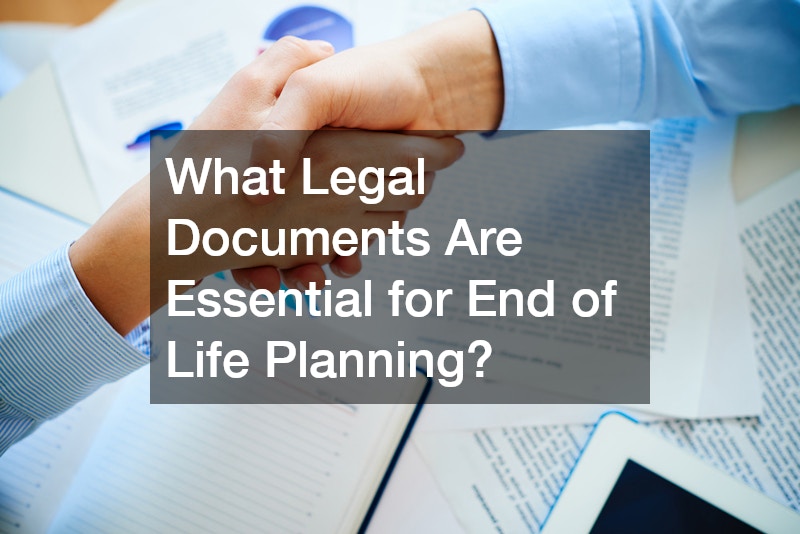As individuals approach the later stages of life, planning their finances becomes crucial for ensuring a smooth transition and leaving a legacy for their loved ones. End of life financial planning involves setting clear directives for the management of assets, protection of wealth, and preparation for unexpected events.
By addressing key components such as estate planning, bookkeeping, debt management, tax minimization, and healthcare costs, individuals can secure their financial future and alleviate burdens for their beneficiaries. This comprehensive guide aims to demystify the process of end of life financial planning and highlight the importance of proactive decision-making.
Understanding the complexities of financial planning at this stage of life can be daunting, but with the right information and guidance, individuals can make informed choices to safeguard their assets and ensure their wishes are fulfilled. Let’s delve into the essential aspects of end of life financial planning to empower individuals in making sound financial decisions.
What is End of Life Financial Planning?
Definition and Key Components
End of life financial planning refers to the process of organizing and managing one’s finances as they near the end of their life. This includes creating a comprehensive plan for the distribution of assets, managing debts, minimizing taxes, and preparing for healthcare costs.
Key components of end of life financial planning include drafting legal documents such as wills and trusts, establishing advanced directives, selecting appropriate life insurance policies, and planning the disposition of one’s estate. These components form the foundation of a well-rounded financial plan that ensures the smooth transfer of wealth to beneficiaries.
By addressing these crucial elements of end of life financial planning, individuals can protect their assets, minimize financial burdens on their loved ones, and leave a lasting legacy for future generations. Timely planning is essential to secure one’s financial future and provide peace of mind during the later stages of life.
How to Start the Conversation About End of Life Planning?
Choosing the Right Time and Setting
Initiating a conversation about end of life financial planning can be challenging, but choosing the right time and setting can make the process easier. It is important to have these discussions in a calm and private environment where all parties involved can express their thoughts and concerns openly.
Consider starting the conversation during a family gathering or a quiet moment at home to ensure that everyone is present and engaged in the discussion. Approach the topic with sensitivity and empathy, emphasizing the importance of planning for the future to alleviate stress and uncertainties for loved ones.
By setting the stage for open communication and mutual understanding, individuals can address the sensitive topic of end of life financial planning with respect and compassion. Encouraging family members to share their perspectives and preferences can foster collaboration and consensus in making important financial decisions.

What Legal Documents Are Essential for End of Life Planning?
Wills and Trusts
Creating a will is a foundational element of end of life financial planning, as it dictates how an individual’s assets will be distributed upon their passing. A will outlines the beneficiaries, assigns guardianship for minor children, and appoints an executor to oversee the estate.
Trusts are also essential legal instruments in end of life planning, allowing individuals to transfer assets to beneficiaries while specifying conditions for the distribution of funds. Trusts organized by a local tax preparation service can help minimize estate taxes, avoid probate, and provide ongoing support for loved ones beyond the individual’s lifetime.
Consulting with an estate attorney or legal professional specializing in end of life planning can help individuals navigate the complexities of wills and trusts, ensuring that their wishes are documented clearly and legally binding. These legal documents form the backbone of a comprehensive end of life financial plan.
Understanding Life Insurance in End of Life Planning
Different Types of Life Insurance Policies
Life insurance plays a critical role in end of life financial planning by providing financial security for beneficiaries after an individual’s passing. There are various types of life insurance policies, including term life, whole life, and universal life insurance, each offering different coverage options and benefits.
Term life insurance provides coverage for a specific period, typically 10-30 years, while whole life insurance remains in force for the insured’s lifetime and includes a cash value component. Universal life insurance offers flexibility in premium payments and death benefits, allowing policyholders to adjust coverage as needed.
Choosing the right life insurance policy involves considering factors such as coverage amount, premium costs, beneficiaries, and financial goals. By assessing individual needs and consulting with a financial advisor, individuals can select a policy that aligns with their end of life financial planning objectives.
Planning Your Estate: How to Protect Your Assets?
Estate Planning Basics
Estate planning is a critical aspect of end of life financial planning that involves organizing and managing one’s assets to ensure their efficient transfer to beneficiaries. By creating an estate plan, individuals can protect their wealth, minimize tax liabilities, and preserve their legacy for future generations.
The basics of estate planning include identifying key assets, such as real estate, investments, retirement accounts, and personal belongings, and determining how these assets will be distributed upon the individual’s passing. Some individuals choose to liquify certain assets, such as trading cash for coins to make distribution easier. Estate planning also encompasses considerations for healthcare directives, guardianship arrangements, and charitable contributions.
Working with estate attorneys or estate planning lawyers can help individuals navigate the intricacies of estate planning, ensuring that their assets are protected and distributed according to their wishes. By proactively managing their estate, individuals can secure financial stability for their loved ones and leave a lasting legacy.

Managing Debts Before It’s Too Late
Impact of Debts on Estate and Beneficiaries
Debts can significantly impact an individual’s estate and inheritance, potentially reducing the assets available for distribution to beneficiaries. It is crucial to address outstanding debts as part of end of life financial planning to prevent financial burdens from affecting loved ones after the individual’s passing. Debts from payday loan providers, 24/7 bail bondsmen, and credit cards may be able to be consolidated. Working with local bankruptcy attorneys can help.
Debt management strategies may include consolidating debts, negotiating payment plans with creditors, or seeking assistance from financial advisors. By resolving outstanding debts before the end of life, individuals can protect their assets and ensure a smoother transfer of wealth to beneficiaries.
Consulting with bankruptcy attorneys or financial experts specializing in debt management can provide individuals with the guidance they need to address financial obligations and protect their estate. By proactively managing debts, individuals can secure their financial future and prevent unnecessary complications for their beneficiaries.
How to Minimize Taxes on Your Estate?
Understanding Estate Taxes
Estate taxes can significantly impact the value of an individual’s estate, reducing the assets available for distribution to beneficiaries. Understanding estate tax laws and regulations is essential for minimizing tax liabilities and maximizing the value of the estate for loved ones.
Strategies for minimizing estate taxes may include leveraging tax exemptions, gifting assets to beneficiaries during the individual’s lifetime, establishing trusts, or utilizing charitable contributions. By implementing tax-efficient strategies, individuals can protect their assets and ensure a more substantial inheritance for their beneficiaries.
Working with competent tax professionals, the best estate planning attorneys, or experienced financial advisors can provide individuals with the expertise needed to navigate complex tax laws and optimize their end of life financial planning. By proactively addressing tax implications, individuals can preserve their wealth and provide financial security for future generations.
Investment Decisions and End of Life Financial Planning
Assessing Risk and Adjusting Your Portfolio
Investment decisions play a crucial role in end of life financial planning, as individuals need to assess risk tolerance, adjust their portfolio, and align investments with their financial goals. As individuals near the later stages of life, it may be advisable to shift towards more conservative investment options to protect capital and minimize risk.
Consulting with a financial advisor can help individuals evaluate their investment strategy, reallocate assets, and make informed decisions about their portfolio. By diversifying investments, monitoring market trends, and adjusting asset allocation, individuals can safeguard their wealth and ensure financial stability in the later years of life.
Financial advisors can offer valuable insights and recommendations for optimizing investment decisions as part of end of life financial planning. By staying informed about market conditions, assessing risk factors, and adjusting investment strategies, individuals can enhance their financial security and achieve their long-term financial objectives.

The Role of Healthcare Costs in Financial Planning for End of Life
Estimating Future Healthcare Costs
Healthcare costs can pose a significant financial burden for individuals as they age, especially during the later stages of life when medical expenses may increase. Estimating future healthcare costs and planning for these expenses is essential for ensuring financial stability and protecting assets.
Consideration should be given to factors such as long-term care insurance, Medicare coverage, out-of-pocket expenses, and potential medical emergencies. By projecting healthcare costs and incorporating them into end of life financial planning, individuals can prepare for unexpected medical expenses and reduce financial strain on their estate.
Consulting with healthcare financial planners, insurance advisors, or healthcare professionals can provide individuals with insights into managing healthcare costs and securing adequate coverage. By proactively addressing healthcare expenses, individuals can protect their assets and ensure access to quality medical care in the later stages of life.
Charitable Giving and Legacy Planning
Options for Charitable Contributions
Charitable giving is a meaningful aspect of end of life financial planning, allowing individuals to support causes they are passionate about and leave a lasting impact on their community. Options for charitable contributions may include donating to nonprofit organizations, establishing charitable trusts, or setting up foundations.
Considerations for charitable giving include selecting reputable charities, specifying donation amounts, outlining charitable intentions in legal documents, and involving family members in philanthropic decisions. By incorporating charitable giving into end of life planning, individuals can create a meaningful legacy and support important causes beyond their lifetime.
Consulting with estate planning attorneys, financial advisors, or philanthropic advisors can help individuals explore options for charitable giving and create a legacy plan that aligns with their values and financial goals. By making informed decisions about charitable contributions, individuals can leave a positive impact on society and preserve their values for future generations.
How to Ensure Your Wishes Are Fulfilled?
Communication with Family and Executors
Effective communication with family members and appointed executors is crucial for ensuring that one’s wishes are fulfilled during the end of life financial planning process. Clearly articulating desires, preferences, and directives can prevent misunderstandings and conflicts among beneficiaries. A local divorce and family law attorney can help you with this step if needed.
Regular discussions with family members about financial plans, legal documents, and asset distribution can provide transparency and clarity regarding end of life intentions. Additionally, maintaining open lines of communication with appointed executors or trustees can ensure that they understand their roles and responsibilities in executing the individual’s wishes.
By fostering open and honest communication with family members and executors, individuals can establish trust, mitigate potential disputes, and ensure that their end of life financial planning objectives are carried out according to their wishes. Regular updates to financial and legal documents can also help to reflect changing circumstances and preferences over time.

Dealing with Unexpected Events and Contingencies
Creating a Resilient Financial Plan
Anticipating unexpected events and contingencies is an essential aspect of end of life financial planning to prepare for unforeseen challenges or emergencies. Creating a resilient financial plan involves evaluating potential risks, establishing contingency measures, and adapting the plan as needed.
Consider setting aside emergency funds, purchasing insurance coverage, establishing durable power of attorney, and outlining healthcare directives to address unexpected events. By incorporating contingency planning into end of life financial planning, individuals can protect their assets and ensure financial stability in times of crisis.
Regular reviews and adjustments to the financial plan are key to maintaining resilience and adaptability in the face of changing circumstances. By staying proactive, individuals can navigate unexpected events with confidence and safeguard their financial future for themselves and their loved ones.
Conclusion
In conclusion, end of life financial planning is a vital process that involves making informed decisions to safeguard assets, prepare for future contingencies, and ensure that one’s wishes are fulfilled. By addressing key components such as estate planning, debt management, tax minimization, and healthcare costs, individuals can secure their financial future and leave a legacy for their loved ones.
Proactive and informed decision-making in end of life financial planning can alleviate burdens on beneficiaries, protect assets, and provide peace of mind during the later stages of life. By consulting with professionals such as estate attorneys, financial advisors, and tax experts, individuals can navigate the complexities of financial planning and create a comprehensive plan that reflects their values and objectives.
Empowering individuals to take charge of their financial future through end of life planning can lead to greater financial security, enhanced family relationships, and a strengthened legacy for future generations. By demystifying the process of end of life financial planning and offering guidance on key considerations, this article aims to support individuals in making sound financial decisions for themselves and their loved ones.
